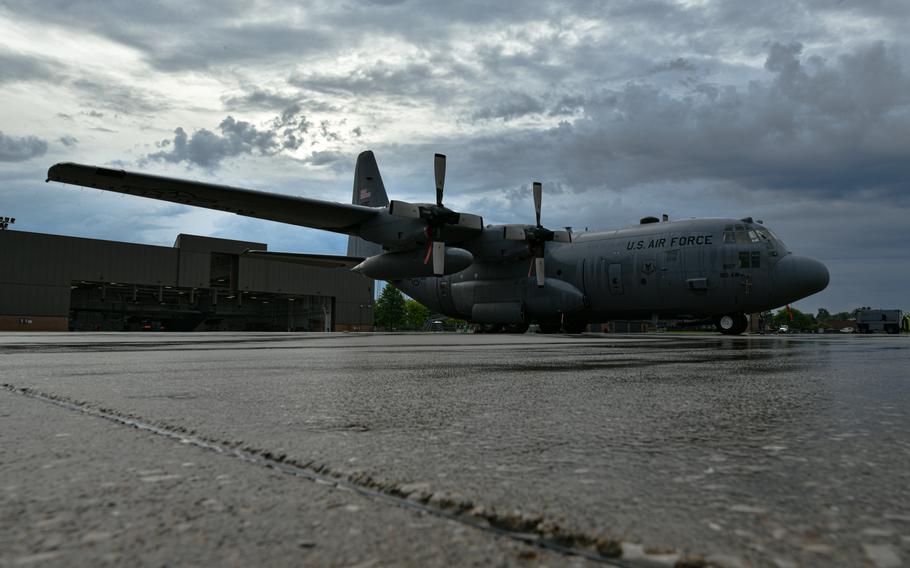
A C-130H Hercules aircraft assigned to the 757th Airlift Squadron sits on the flight line, July 22, 2020, at Youngstown Air Reserve Station in Ohio. C-130H Hercules are capable of operating from rough, dirt strips and are the prime transport for airdropping troops and equipment into hostile areas. The aircraft’s flexible design enables the aircraft to be configured for many different missions. (Christina Russo/U.S. Air Force)
The Air Force has returned two C-130H cargo planes to flight status after part of the Hercules fleet was grounded last month amid concerns about cracks in their propeller barrel assemblies, a service spokesman said Monday.
It was unclear Monday how long the remaining 114 grounded Hercules turboprop aircraft would remain out of the air, said Maj. Beau Downey, a spokesman for Air Mobility Command. He warned the process would “take some time” as the service worked to replace older-model propellers with an updated version on planes found to be impacted. The problem was first discovered in September at Robins Air Force Base, Ga.
“This is a technically and logistically complex problem,” Downey said. “Right now, we are in the initial stage — focused on ensuring all functions addressing the fixes are aligned. While we expect the flow of inspections and fixes to increase in the near future, we are focused on safety and quality.”
Maintenance crew at Warner Robins Air Logistics Center first found the cracks during a post-depot inspection, the Air Force said. Subsequent inspections on two additional C-130Hs with the older 54H60 propellers turned up similar cracks in their propeller barrels.
Most of the C-130Hs impacted by the grounding belong to Air National Guard and Air Force Reserve units, Downey said. The issue does not impact newer C-130J Super Hercules models nor C-130H aircraft that have been upgraded with NP2000 propeller assemblies, the service said previously.
Downey said the Air Force was working to hasten the process to inspect the grounded C-130Hs and replace propeller assemblies in those found to require upgrades.
The propeller crack problem marked the second time in recent years that the Air Force has been forced to ground some of its workhorse C-130 fleet. In 2019, the service halted flights of C-130H and C-130J model aircraft after discovering cracks in the wing joints of at least two of its planes.
The Air Force has flown C-130s since the 1950s. The aircraft can carry people and gear on a wide variety of operations, including landing on short, dirt airstrips under combat conditions. The newest C-130J models, which are longer, faster and capable of carrying more weight than any of the previous versions of the aircraft, entered the fleet in 1999. The Air Force has said C-130s will continue flying into at least the 2030s.